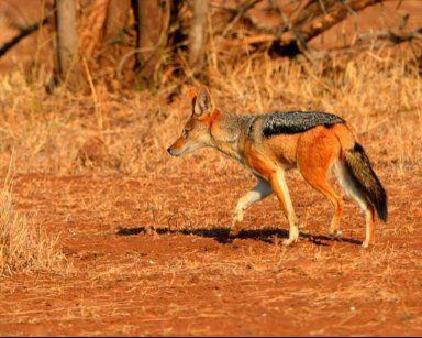Biology Reference
In-Depth Information
Jackal
Last year when we were in Moremi, the largest game reserve in the swamps, we hardly saw
any herbivores apart from huge herds of elephants, sometimes a hundred strong. Whether the
huge elephant herds are causing harm to other animals or not is debated. They clearly have a
devastating effect on the vegetation but some research shows that when vegetation becomes
less available, elephants become less reproductive as it is well known that starving
populations have declining fertility. Animal counts done in the swamps have also shown a
declining population of herbivores between 50% to 60% or more depending on species. The
stopping of the migration by the fences must have been a factor in wildebeest nearly being
locally extinct. A cursory look at animal populations in the Olifant's (Elephants) Game
Reserve with no restrictive fences and the burgeoning over population in the Kruger Park
moving into Olifant's shows an inverse relationships with wildebeest or zebra populations and
elephant numbers - is this causally related or dependent on rainfall or vegetation or water
resources or other factors? In other words, the data from the Greater Kruger Park area would
suggest that an over population of elephants reduces the population of other medium sized
browsers and grazers such as wildebeest, kudu, and zebra.

Search WWH ::

Custom Search